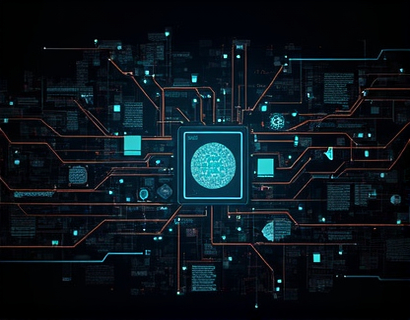Advanced Cybersecurity Strategies for High-Net-Worth Individuals, Celebrities, and Cryptocurrency Professionals
In the rapidly evolving digital landscape, high-net-worth individuals, celebrities, and professionals in the cryptocurrency sector face unique and sophisticated cyber threats. These individuals often possess substantial assets, both financial and personal, making them prime targets for cybercriminals. Traditional security measures may fall short against the advanced tactics employed by these threats. This article delves into tailored cybersecurity strategies designed to provide elite defense for those who need it most, ensuring the protection of their most valuable information and assets.
Understanding the Threat Landscape
The cybersecurity threat landscape is dynamic and constantly evolving. For high-net-worth individuals, celebrities, and cryptocurrency professionals, the risks are multifaceted. These groups often deal with large sums of money, sensitive personal data, and valuable intellectual property, all of which are attractive targets for cybercriminals. The cryptocurrency sector, in particular, is a burgeoning field with its own set of vulnerabilities. From phishing attacks to sophisticated malware, the methods used by cybercriminals are becoming increasingly sophisticated.
One of the most significant threats is the risk of financial loss. Cryptocurrency, being a digital asset, can be stolen or compromised with relative ease if proper security measures are not in place. Additionally, personal data breaches can lead to identity theft, blackmail, and reputational damage. For public figures, the exposure of private information can have far-reaching consequences, affecting not only their personal lives but also their careers and business ventures.
Tailored Cybersecurity Solutions
To effectively counter these threats, it is essential to implement advanced digital defense strategies that are specifically tailored to the needs of high-net-worth individuals, celebrities, and cryptocurrency professionals. These solutions must be comprehensive, proactive, and adaptable to the ever-changing threat landscape.
First and foremost, a robust security infrastructure is crucial. This includes state-of-the-art firewalls, intrusion detection systems, and endpoint protection solutions. These tools form the first line of defense against unauthorized access and malicious activities. However, relying solely on technology is insufficient. Human factors play a significant role in cybersecurity, and educating users about best practices is vital.
For high-net-worth individuals and celebrities, personalized security training sessions can help raise awareness about potential threats and teach effective countermeasures. This training should cover topics such as recognizing phishing emails, securing devices, and managing passwords. Regular updates and simulations can ensure that users remain vigilant and prepared.
Advanced Authentication Methods
One of the most critical aspects of cybersecurity is authentication. Traditional password-based systems are increasingly vulnerable to attacks. Implementing multi-factor authentication (MFA) significantly enhances security by requiring additional verification steps beyond just a password. For instance, combining a password with a biometric factor like fingerprint scanning or a one-time code sent to a trusted device can provide a robust defense against unauthorized access.
For cryptocurrency professionals, hardware wallets with strong authentication mechanisms are essential. These devices store private keys offline, reducing the risk of online attacks. Additionally, using secure and reputable exchanges with strong security protocols can further minimize the risk of losing cryptocurrency assets.
Data Encryption and Secure Storage
Encryption is a fundamental component of data security. Sensitive information, whether financial records, personal correspondence, or cryptocurrency wallet details, should be encrypted both in transit and at rest. Utilizing strong encryption algorithms ensures that even if data is intercepted or accessed unauthorized, it remains unreadable and unusable.
Secure storage solutions are equally important. Cloud storage services should be used with caution, opting for providers that offer end-to-end encryption and strict access controls. For local storage, encrypted external drives and secure file management practices should be employed. Regular backups of critical data, stored in secure locations, can help mitigate the impact of data loss or ransomware attacks.
Network Security and Monitoring
A secure network is the backbone of any robust cybersecurity strategy. Implementing a secure network architecture involves segmenting the network to limit the spread of potential breaches, using virtual private networks (VPNs) for secure remote access, and regularly updating and patching all devices and software to address known vulnerabilities.
Continuous monitoring and threat detection are essential for identifying and responding to security incidents in real-time. Advanced monitoring tools can detect unusual activity, such as unauthorized access attempts or data exfiltration, and alert security teams immediately. This proactive approach allows for swift action to contain and mitigate threats before they cause significant damage.
Incident Response and Recovery
Despite the best preventive measures, security incidents can still occur. Having a well-defined incident response plan is crucial for minimizing the impact of breaches. This plan should outline clear steps for containment, eradication, recovery, and post-incident analysis. Regular drills and simulations can help ensure that all stakeholders are prepared to act effectively in the event of a security incident.
Recovery processes should focus on restoring systems and data to a secure state as quickly as possible. This may involve using encrypted backups and implementing additional security measures to prevent similar incidents in the future. Transparent communication with affected parties, including clients and stakeholders, is also essential to maintain trust and credibility.
Reputation Management and Legal Considerations
For high-net-worth individuals and celebrities, the reputational impact of a cybersecurity breach can be devastating. In addition to technical measures, it is important to have a robust reputation management strategy in place. This includes monitoring online presence, managing public relations, and addressing any negative fallout promptly and professionally.
Legal considerations are also paramount. Engaging with legal experts who specialize in cybersecurity and digital assets can help navigate the complex legal landscape, ensuring compliance with regulations and protecting against potential legal challenges. This is particularly important in the cryptocurrency sector, where laws and regulations can vary significantly by jurisdiction.
Conclusion
In conclusion, cybersecurity for high-net-worth individuals, celebrities, and cryptocurrency professionals requires a multi-layered, proactive approach. By understanding the unique threats they face and implementing advanced digital defense strategies, these individuals can significantly enhance their security posture. From robust authentication methods and data encryption to comprehensive incident response plans and reputation management, every aspect of cybersecurity must be carefully considered and executed. In an increasingly digital world, staying ahead of cyber threats is not just a necessity but a critical component of safeguarding one's assets and personal information.










































